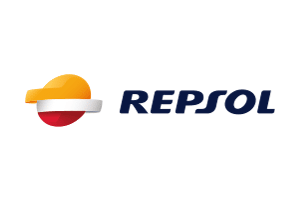
Repsol is advancing sustainable innovation by coordinating the Plastics2Olefins project, developing cutting-edge technology to produce circular polymers with a reduced carbon footprint, supported by renewable energy integration and digitalization.
As a multi-energy company with a global presence, Repsol meets all the energy needs of its customers both at home and on the move. It employs 25,000 people in more than twenty countries and has 24 million customers. Repsol is transforming its six industrial complexes on the Iberian Peninsula into multi-energy hubs, capable of treating a wide variety of raw materials and waste to manufacture products with a low carbon footprint, such as 100% renewable fuels, which will be key to achieving its goal of being a zero net emissions company by 2050, or the production of 100% circular polymers.
The main goal of Repsol is to become a net-zero emissions company by 2050, in line with the targets set out in the Paris Agreement. The circular economy strategy of Repsol was approved in 2016 and is incorporated within the Company Strategic Plan, reinforcing its sustainability strategy and its commitment to reaching net-zero emissions by 2050.

For its deployment, Repsol uses its circular economy model which is based on:
- Four pillars: Eco-design, process efficiency and innovation, renewable energy and alternative raw materials, and new consumption patterns.
- Three drivers: Repsol Technology Lab, alliances, and digitalization.
Repsol’s Role in Plastics2Olefins
Repsol is coordinating the project Plastics2Olefins, through which a new technology for chemical recycling of plastic wastes is being developed. This technology will produce circular polymers with a significant reduction of carbon footprint compared to the state-of-the-art technologies based on chemical recycling.

The Plastics2Olefins technology is being developed in its first phase on a pilot plant scale located at Repsol Technology Lab, where the different technological stages of the process are being validated and optimized. The integration of renewable energy in the process is being optimized to ensure the maximum reduction of carbon footprint of the technology. Repsol will scale up the technology during the second phase of the project. To this end, a demonstration plant will be installed at one of the petrochemical sites of Repsol in Iberia to validate the technology in an industrial environment.
Project Status and Progress
Currently, Repsol is working on the final optimization of the technology at the pilot plant scale to define the final design that should be considered in the engineering of the demo plant. It is critical to validate all aspects of the design in the pilot plant before defining the design of the demo plant and to incorporate in the final design the lessons learned from experimentation at the pilot plant.

Repsol is also working on the digitalization of the technology through the development of a digital twin of Plastics2Olefins to simulate and monitor process dynamics, enabling the identification of the optimal operating conditions that maximize the production of final circular olefins.
So far, the Plastics2Olefins project has achieved the following:
- Successfully implementing the pyrolysis technology and the pilot plant is running
- Operational testing is ongoing despite the complexity of the technology
- Promising outcomes have emerged from the project
- Techno-economic analyses and various mathematical optimization models have been developed and tested
